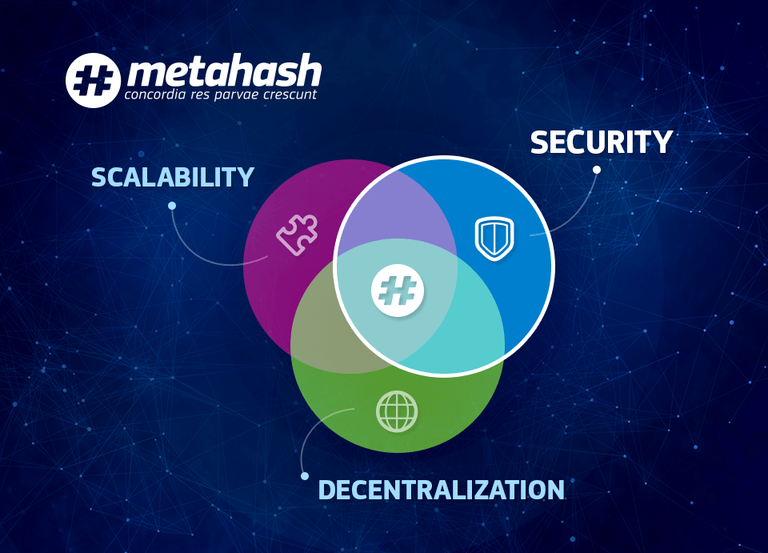
We have already discussed blockchain scalability, now let’s look at such an important component of blockchain cornerstone as security.
Each decentralized ecosystem is vulnerable to assaults. In other words, you cannot create an open distributed network that cannot be attacked. Therefore, when designing a distributed system, the creators are obliged to remember about it and build a network in the way that the attack becomes simply unreasonable for ill-wishers and fraudsters. It is important to make sure that an assault takes too many resources and the result does not justify itself. Users should not trust the manipulations of hackers, and the network should be restarted in a right time.
The consensus algorithm (no matter, is it PoS (Proof-of-Stake) or PoW (Proof-of-Work)) is designed right for solving this part of blockchain trilemma. But, of course, in any of these types of consensus a serious risk of centralization occurs. In the case of the PoW, the risk lies in users’ investments in exclusive equipment and mining pools. When PoS, the danger is represented by coin funds of network participants — it often happens that the funds are concentrated in the hands of several strong players. It can be argued that very often PoW-systems are controlled by mining pools, and PoS — by “whales”.
As you can see, security factor is inseparably linked with decentralization, which we will talk about next time!
To avoid this threat, #MetaHash developers introduced the creators of random blocks and their controllers. In addition, the concept of Trust, the level of credibility to a particular node, was added into the network. Throughout the work with the system, the owner of the node can both increase and lower his Trust. Thanks to this, an unreliable user will never be able to coordinate an attack on the network, since each involved attacker will lose in the level of trust and the corresponding functionality, becoming insufficiently effective for the successful attack. In addition, thanks to the Multi-PoS algorithm, an adversary will need a huge amount of money to manipulate the network in any way.
— — — — — — — — — — — — — — — — — — — — — — — — — —
We are expanding the pool of partners: now exchanges could list our token themselves. Here is a link to the guide — https://metahash.org/for_exchanges
Our website: https://metahash.org
Telegram: https://t.me/metahash_ENG
Twitter: https://twitter.com/themetahash
Warning! This user is on our black list, likely as a known plagiarist, spammer or ID thief. Please be cautious with this post!
our discord. If you believe this is an error, please chat with us in the #appeals channel in